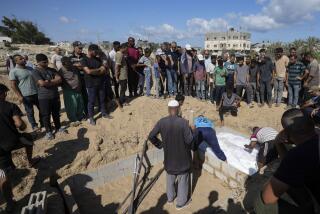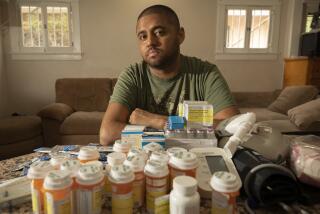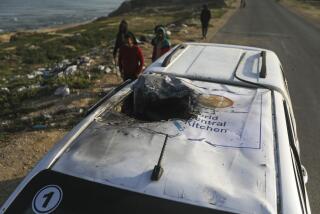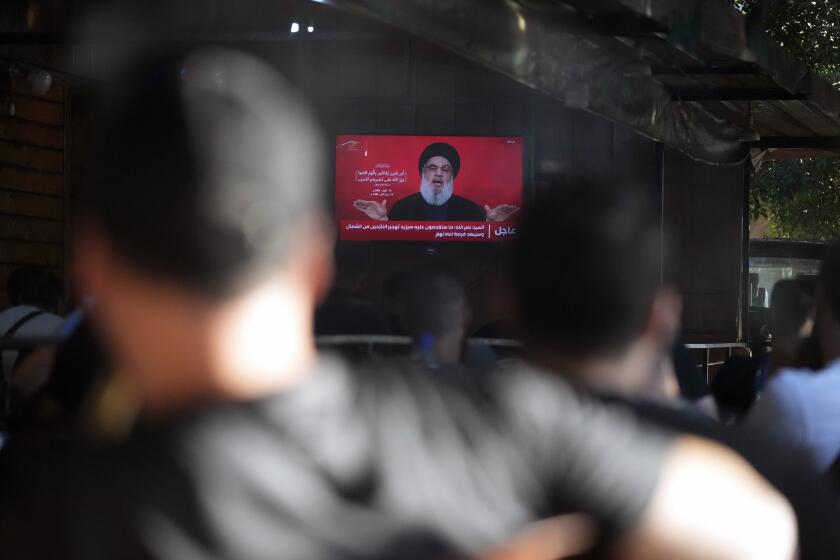In Iraq, like anywhere, it’s hard to find good morgue workers
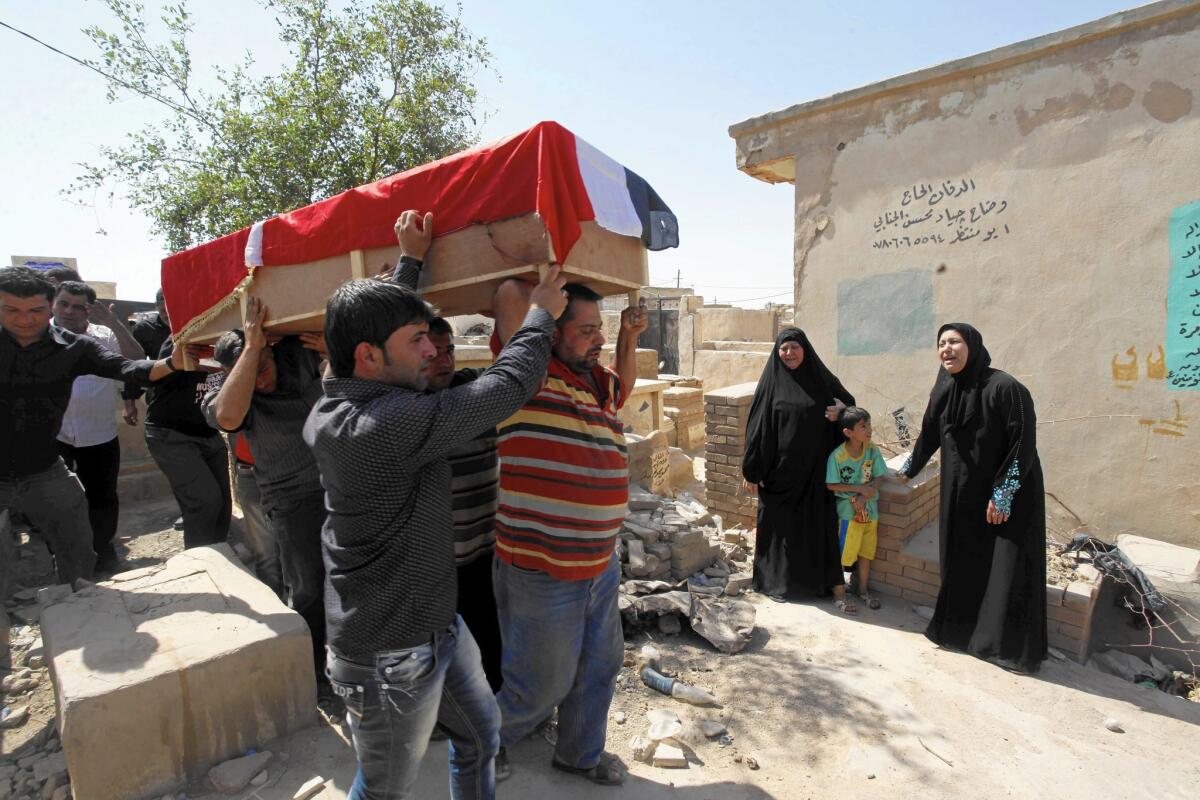
There was blood on the white tile floor, on the eight metal gurneys and on the hands of the worker using coarse black thread to sew up an autopsy incision on the latest body to arrive at the moldering central morgue.
A sour smell of blood filled the air as the man worked, a black apron draped across his blue scrubs, rubber boots shielding his feet. The woman had died of natural causes, he said. A doctor sent the body here for an autopsy just in case the death proved suspicious. (It didn’t.)
Outside, four more corpses awaited autopsies: two splayed naked on gurneys, a third in a black body bag on the ground, and a fourth wrapped in a fuzzy flowered blanket with a trail of bloodstains from a bullet wound to the neck. More bagged bodies were piled nearby in a makeshift freezer.
Ten doctors and eight additional staff members are assigned to the central morgue. But that’s barely enough, employees said, even though the workload is much lighter than during the U.S.-led invasion of Iraq in 2003 and the height of Iraqi sectarian warfare four years later.
“The problem is not so much a shortage of doctors. It’s a shortage of people willing to do the work,” said the morgue worker, an Egyptian immigrant who asked to be identified only as Dr. Adil. “People don’t really have the courage for it.”
As in much of the world, there is only a small segment of the population willing to work with the dead. And there is also the risk of disease and, in Iraq, the danger of upsetting families who prefer Muslim Iraqi doctors, now in short supply.
Adil said he handles about five cases a day, half the daily total. That is a relatively light load, less than a tenth of the daily total in 2007. But the small staff is still strapped, forced to work quickly with little attention to detail, he said.
Adil has labored here for 18 years but, like many foreign staffers, does not have a full-time contract. Whereas doctors are paid $4,000 a month, he and other immigrant employees get about $210. They are deemed temporary workers, regardless of their length of service.
Temporary staff members can be appointed as permanent employees, he said. “We’re hoping with the budget now they’ll be appointing more,” he said, as another worker wheeled in the body in the flowered blanket, probably a victim of sectarian violence.
Dr. Taha Qasim, head of administration for forensic medicine at the morgue, said the facility has been called upon to do more with fewer staff members, leading to delays.
“We try our best, but the fact is there’s not enough of us and we’re just exhausted,” Qasim said.
In addition to autopsies, morgue staff members test DNA and determine whether living victims suffered torture, rape and abuse. That has increased the risks of the job, as families who disagree with findings have been known to attack the medical examiners.
A law passed in 2013 provided guards and some related expenses for forensic physicians.
Such problems are not unusual in war-torn countries, but experts said that because the conflict in Iraq has been particularly prolonged, a greater toll has been taken on morgue staff members and services.
“It’s very harsh, the situation,” Claudia Garrido Varas, a forensic dentist and anthropologist, said when she stopped by to see Qasim late last month.
Garrido, regional forensic advisor to the International Committee of the Red Cross, had just finished a volunteer stint with an Iraqi team excavating mass graves and was donating centrifuges to the morgue before returning home to Chile.
Since the summer, fewer of the corpses arriving at the Baghdad morgue have shown signs of violence, she said, but “the issues are still hard to cope with — too many cases, not enough resources. They need many more people than they have.”
Dr. Riyadh Zaidi, head of forensic medicine at the Health Ministry, said Iraqi forensic experts have been lured elsewhere in the country and region by better pay and working conditions. There are 40 forensic doctors left nationwide, he said, half of them in Baghdad, where Zaidi said at least 60 are needed.
He said the ministry recently started a new program to train and hire additional physicians.
More than 10,000 Iraqi students are studying in sciences abroad and expected to return within two years, Zaidi said. Medical students who agree to return and work at the morgue will be exempted from a requirement to serve in the provinces and can earn an advanced degree within a year, he said. The ministry is also building a new six-floor morgue next to the old one, although it’s unclear how soon it will open, he said.
Back in the central morgue, Adil said he did not expect to see any of the new young doctors soon.
“They’re still training,” he said as he prepared to autopsy the shooting victim’s body, quoting an Arabic saying: “The rip is big, but the patch is small.”
Bulos is a special correspondent. Special correspondent Murtada Faisal in Baghdad contributed to this report.
More to Read
Sign up for Essential California
The most important California stories and recommendations in your inbox every morning.
You may occasionally receive promotional content from the Los Angeles Times.
